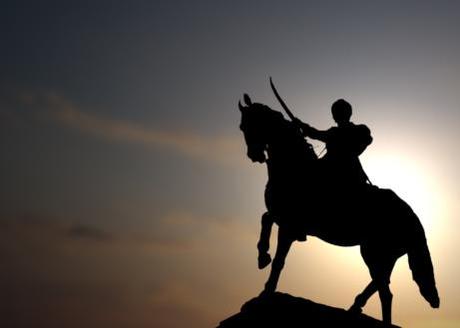
(c) Microsoft image
I was in my childhood introduced to a number of iconic super heroes. They were once in comic books, then in cartoons and later emerged from silver screen. Many of them have resurrected in current films from their earliest depictions.With the help of advance digital technology, we have seen those heroes being finally incarnated, stretching the threshold of realism to the point of making these heroes life-like with their magic and powers leap out from fantasy into our lives. They are so real on-screen and it excites us to watch them and see them alive for the first time. This is the fantastic image of a hero we believe as kids.
In many fairy tales, legends, epics and myths, this timeless, archetypal story of a hero is told and retold many times. The characters have changed, but the heroic spirit and adventure haven’t. American mythologist Joseph Campbell discovered this recurring motif and called it “The Hero’s Journey”. We see different heroes with the same journey it takes. A hero is in a mission to save a kingdom, a valuable object or a damsel in distress. This hero is bound to face the travails and challenges, defeat a terrifying monster, and restore peace and order across kingdoms. These elements have become the stuff of modern heroic stories.
Nonetheless, as I grew up, I began learning in school a different kind of hero. These are heroes who wielded swords, led huge armies and defeated the conquerors. They wrote explosive ideas that stirred the patriotic energy and arouse rebellions and revolutions. They are noble martyrs and servants of a nation’s heritage. They do not possess any magical powers, but they are remembered, venerated and revered like their mythical counterparts. Banknotes, coins and stamps bear their faces. Streets and buildings bear their names. Painters and sculptors depict them in their arts. And it these historical heroes share the same theme as what mythical heroes also have: the hero is someone who acts alone as singular force to end an almost insurmountable challenge from difficult enemies. This realistic image of hero is what we have always believed.
…we are called to fulfill our heroic purpose – to finally share Love in infinitely unique ways.
We have romanticized the hero since then. In Western storytelling, there is only a single hero who can always save the day. The hero can always save the world from its enemies. We have translated this idea of a hero in our history and our lives, as we look with so much heroic expectations from people whom we have thought have power of heroic proportions. This hero is usually a political, military or religious leader, both in the past and in the present. This hero is either a celebrity or a genius, an athlete or an artist. This hero is either a saint or an ordinary person who has done something significant and life-changing. The idea is that the hero must be all by him or herself, and we only expect him or her to save and change the world alone.
But, unknown to us, our propensity for finding a messianic hero has already led us to disappointment and frustration. The world is in trouble, and despite the heroes we have chosen, we are left uninspired, bored and afraid of the entire troubles that viciously come and go in our lives. We badly in need of a true hero yet most of those we have thought as heroes have fallen short of our expectations. Worst, they have become villains. In our lives, we have seen our parents and teachers, lovers and friends as life’s heroes, and yet even them can never completely become a hero to us. Our true hero is still missing.

(c) Microsoft Image
Since we are in need of a hero, we have to stop finding this hero elsewhere and we must begin finding that hero inside each of us. This hero is not a single person more powerful than us. All of us are heroes. We are powerful if we first discover that we all are. To be a hero is not a special calling of someone, but a calling to all of us to be heroes together. The Filipino word for hero is bayani, just one letter different from the word bayan, the Filipino word for community. This bayan, the spirit of “common unity”, emerges when its people have recognized that everyone is a bayani. This is what humanity is finally called for – to emerge as a bayan of countless bayani.
This heroic awakening is not the sole privilege of a few but a birthright of every human being. As heroes, we are not here to wage war nor to defeat anyone, for no one is a villain or enemy except the spirit of divisiveness among us. Our sacred power is not some superhuman or preternatural strength, nor is it some influential or monetary might. This power is beyond measure and gently lives in every human heart – the power to recognize, feel and honor the presence and growth of each other. With such power, we are called to fulfill our heroic purpose – to finally share Love in infinitely unique ways.
